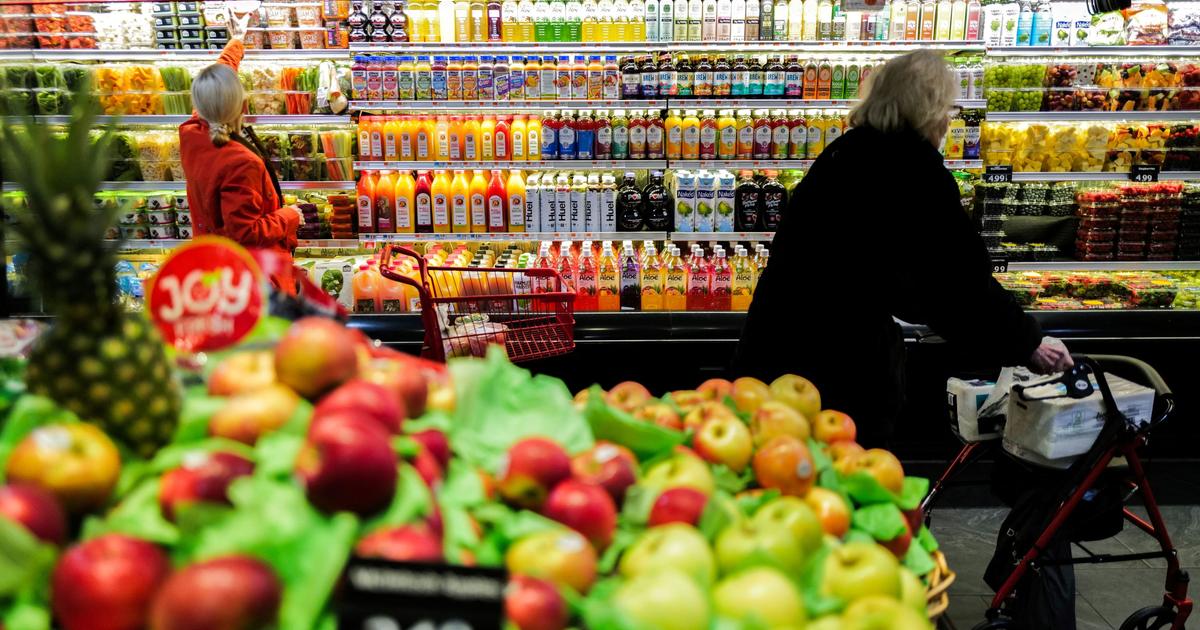To respond to the anger of farmers and their denunciation of foreign competition deemed illegal, the government announced new measures on Thursday.
Among them, the organization of
“more than 10,000 checks
” this year on products sold in supermarkets and in markets to verify their origin.
“It is unacceptable that this French origin, a sign of quality, is overused and circumvented [...] to the detriment of the production of our farmers
,” launched the Minister of the Economy, Bruno Le Maire, on Thursday, before adding
“that there is no question of deception regarding the merchandise”
.
However, some producers do not hesitate to affix a French flag on the packaging of their products, when they actually come from abroad.
“For example, we have already identified a trade in olive oil from Baux-de-Provence which actually came from Spain
,” notes Rémy Slove, spokesperson for the Directorate General for Competition, Consumption and for the repression of fraud (DGCCRF).
With this deception, the olive oil company was able to sell its bottles more expensively and make a profit of 172,000 euros in two months, simply thanks to a tricolor label.
But ultimately caught by the Fraud Repression, the manager received a 24-month suspended prison sentence.
To detect these deceptive commercial practices, the DGCCRF uses several mechanisms.
“We first rely on product traceability by checking the company's invoicing, in other words what goes into inventory and what comes out.”
For example, if a significant quantity of raw materials comes from Italy but the product is labeled
“made in France”
, suspicions arise.
“We also have another very valuable tool: samples.
For example, we are able to say quite precisely the origins of flowers incorporated into honey.”
If a flower does not exist - or very little - in France, this is a good indicator for Fraud Repression.
Also read: Veolia, Boiron, McDonald's... These companies targeted by Fraud Repression for late payments
Particularly targeted products
But with thousands of references on the shelves, how can you target the most problematic ones?
“We carry out pre-targeting on the most characteristic products”
, such as fruits and vegetables, wines and spirits or products of animal origin.
“We pay particular attention to products for which we know that foreign production overlaps with French production
,” adds Rémy Slove.
In 2023, 25% of anomalies have been identified in olive oils, among around forty establishments.
An almost similar result was seen for vegetables, with
“roughly 26% anomalies”
reported last year.
“Out of 500 operators inspected, around fifty received reports concerning deceptive commercial practices, 20 received injunctions to comply and 60 received warnings
,” explains the spokesperson.
For Rémy Slove, these controls are
“all the more important as more and more consumers turn to French products for the defense of agricultural heritage, biological reasons or less use of pesticides”
compared to our neighbors Europeans.
On the consumer side, it is difficult to spot anomalies on the shelves.
It is however possible to analyze the labels, as advised by the Fraud Prevention Authority:
“The front of a product can display a logo of a French flag while a different origin can be marked on the back.”
If a product seems suspicious to you,
“you should not hesitate to make a report on
SignalConso
”
, reminds Rémy Slove.
The players play a big role in falsifying the origin of their products.
They risk a fine of 300,000 euros and up to 10% of their turnover, to which can be added up to two years of imprisonment.
The year 2024 therefore promises to be busy for Fraud Repression, which ensures that it mobilizes its workforce on
“francization, the defense of French agricultural heritage and consumer protection”
.

